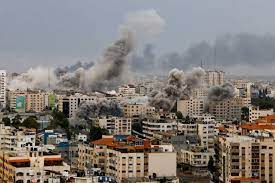
In a devastating development, the Gaza Strip’s sole cancer treatment hospital has been forced to close its doors due to a critical lack of fuel, leaving 70 cancer patients in a life-threatening situation. Palestinian Health Minister Mai al-Kaila sounded the alarm, emphasizing the urgent need for international intervention.
The Turkish-Palestinian Friendship hospital, primarily dedicated to cancer treatment, made the dire announcement during a press conference broadcast by Al-Jazeera TV. Hospital director Subhi Skaik expressed the urgency of the situation, urging the international community not to abandon cancer patients who now face a perilous fate.
Health Minister Mai al-Kaila echoed the hospital director’s concerns in a statement, revealing that this closure brings the total number of non-operational hospitals in the Gaza Strip to 16 out of 35. She stressed the gravity of the situation, explaining that the lives of the 70 cancer patients within the hospital are in immediate danger.
“The number of cancer patients in the Gaza Strip is about 2,000 living in catastrophic health conditions as a result of the ongoing Israeli aggression on the Strip and the displacement of a large number,” added al-Kaila, underscoring the broader impact of the Israeli-Palestinian conflict on public health in the region.
The recent escalation of tensions, which began with an attack by Hamas on southern Israel, has resulted in a total blockade of Gaza, extensive bombardment, and a ground operation by Israeli forces. While Israel’s stated goal is to eliminate Hamas, the humanitarian consequences have been severe, with shortages of food, fuel, drinking water, and essential medical supplies, making it extremely challenging for hospitals to provide care to the injured.
Tragically, the death toll in Gaza continues to rise, with the health ministry in the Hamas-controlled enclave reporting that 8,796 Palestinians, including 3,648 children, have lost their lives as a result of the ongoing conflict. The dire situation underscores the urgent need for international intervention to address the growing humanitarian crisis in the region.
Sources By Agencies


